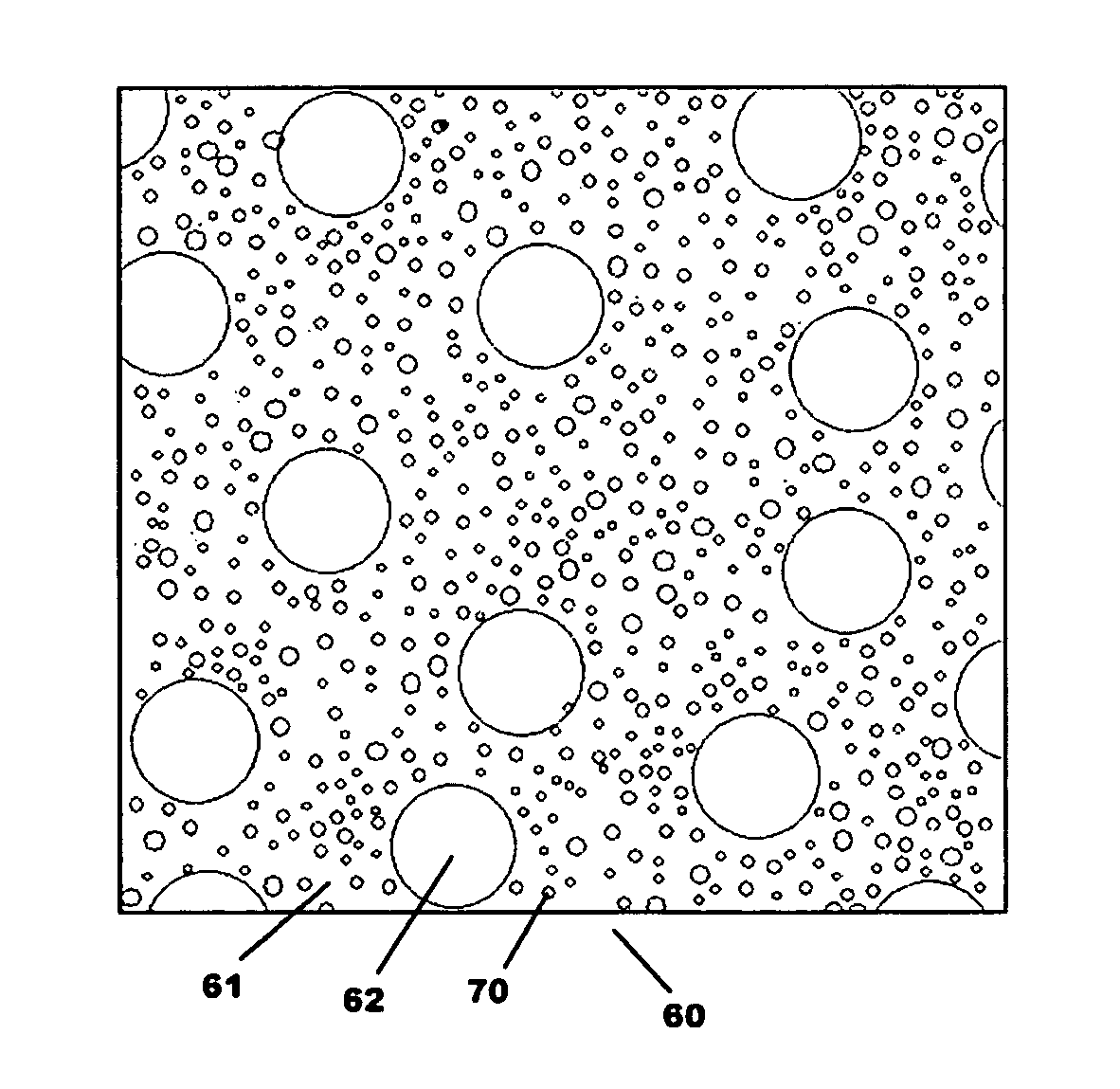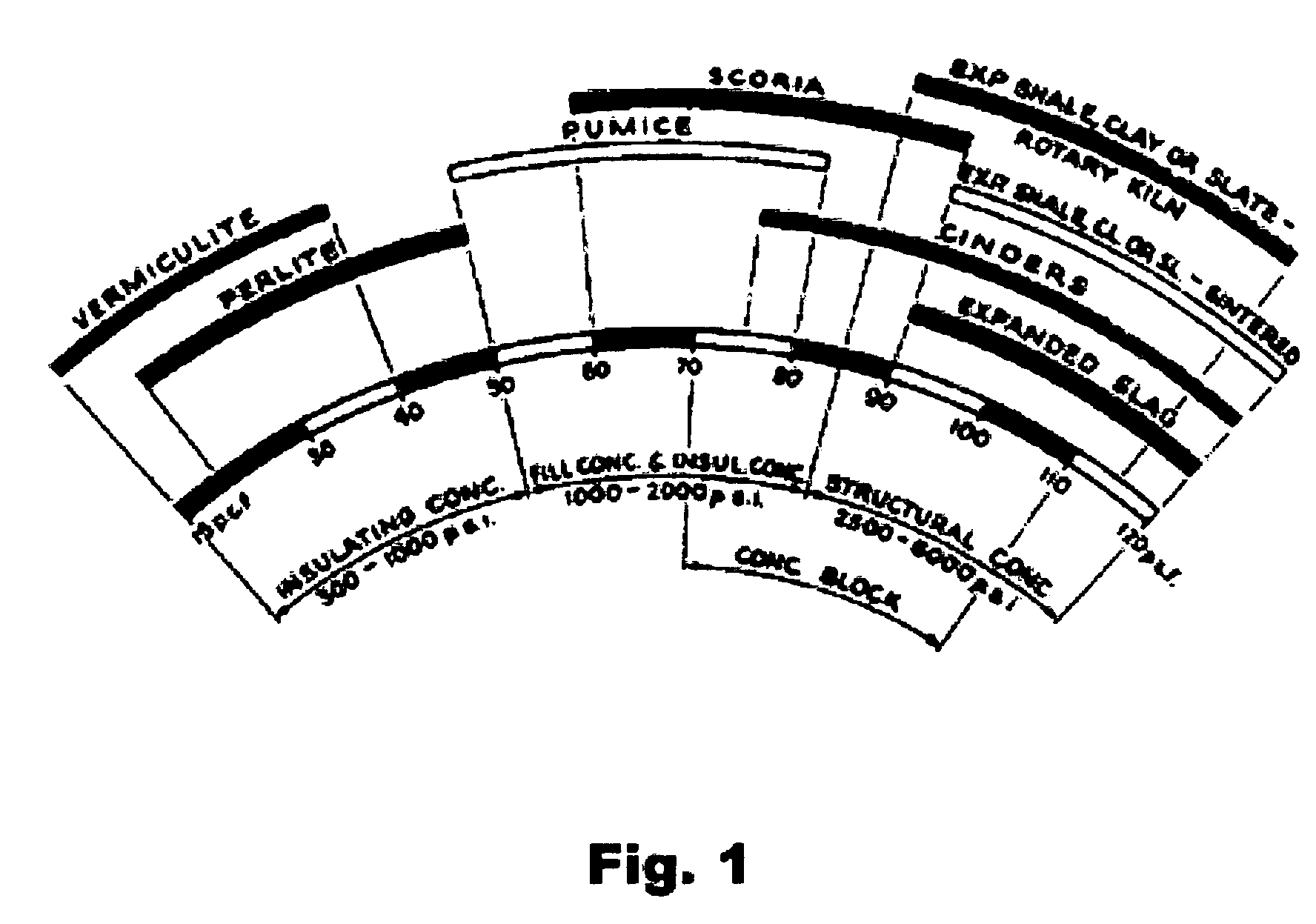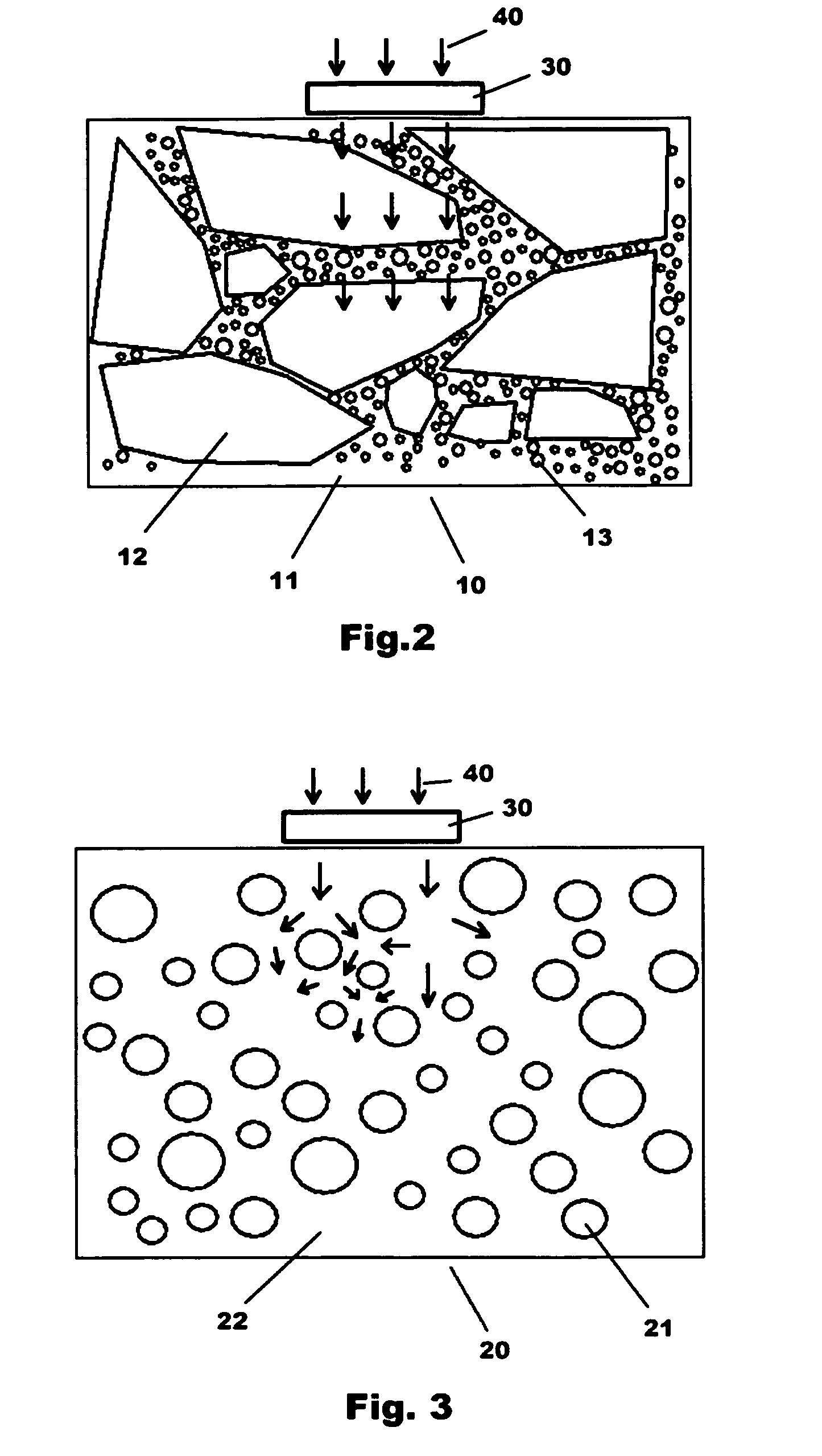Lightweight structural concrete provided with various wood properties
a technology of structural lightweight concrete and wood properties, applied in the field of lightweight concrete, can solve the problems of inability to screw and/or nail the most structural lightweight concrete, limited use of structural lightweight concrete in large cast structures, and limited use in residential buildings
- Summary
- Abstract
- Description
- Claims
- Application Information
AI Technical Summary
Benefits of technology
Problems solved by technology
Method used
Image
Examples
Embodiment Construction
[0023]The present invention relates to a unique lightweight concrete that has both structural property and screw-ability and nail-ability properties similar to that of wood. For purposes of discussion, the structural property relates to the compression strength of greater than 2500 psi. Lightweight refers to a density that is less than 115 lb / ft3. Various wood properties relate the ability of the lightweight concrete to be easily cut by a saw, screwed by common wood screws and nailed by certain hardened nails without cracking. The combinations of these properties make it unique and valuable in many building construction applications.
[0024]Reference will now be made in detail to the present embodiments of the present invention, examples of which are illustrated in the accompanying drawings, wherein like reference numerals refer to like elements throughout. The embodiments are described below in order to explain the present invention by referring to the figures.
[0025]FIG. 1 illustrate...
PUM
| Property | Measurement | Unit |
|---|---|---|
| size distribution | aaaaa | aaaaa |
| size distribution | aaaaa | aaaaa |
| size | aaaaa | aaaaa |
Abstract
Description
Claims
Application Information
 Login to View More
Login to View More - R&D
- Intellectual Property
- Life Sciences
- Materials
- Tech Scout
- Unparalleled Data Quality
- Higher Quality Content
- 60% Fewer Hallucinations
Browse by: Latest US Patents, China's latest patents, Technical Efficacy Thesaurus, Application Domain, Technology Topic, Popular Technical Reports.
© 2025 PatSnap. All rights reserved.Legal|Privacy policy|Modern Slavery Act Transparency Statement|Sitemap|About US| Contact US: help@patsnap.com



